How to Say Age in Japanese
If you’re intrigued by the Japanese language and culture, you might be curious about how to express age in Japanese. Learning how to convey age in a foreign language can be both fascinating and useful. In this comprehensive guide, we’ll dive into the various ways you can say age in Japanese, exploring not only the linguistic aspects but also cultural nuances. By the end of this article, you’ll be equipped with the knowledge to seamlessly express age in Japanese, leaving you feeling confident and culturally aware. So, let’s embark on this linguistic journey together.
Understanding Age Counters in Japanese (H2)
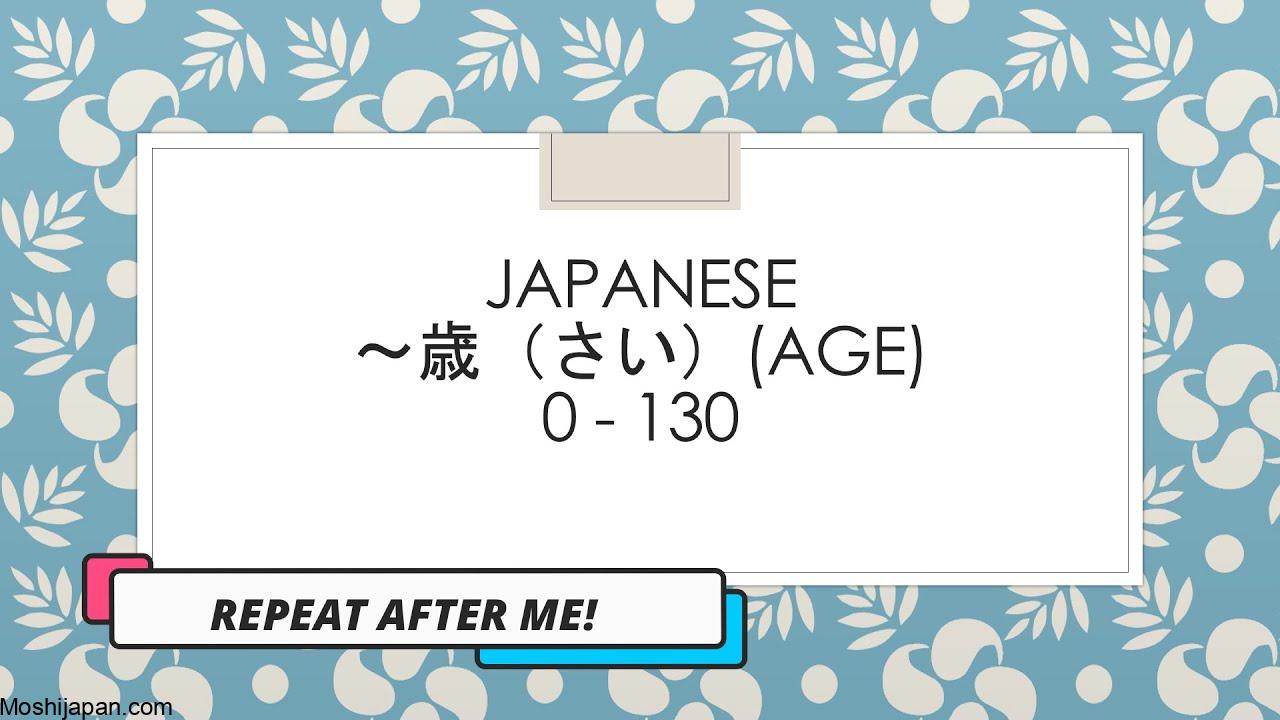
In the Japanese language, expressing age involves the use of specific counters or words known as “toshi-kei.” These counters vary depending on the age of the person you’re talking about and their relationship to you. Here are some of the most common counters:
1. 歳 (Sai) – H3
“歳” or “sai” is a general counter for age in Japanese. You can use it when talking about your own age or the age of someone younger than you. For example, if you want to say you are 25 years old, you would say “私は25歳です” (Watashi wa 25-sai desu).
2. 才 (Sai) – H3
“才” or “sai” is used when referring to young children up to the age of around 12. For instance, if you want to say a child is 5 years old, you would say “その子は5才です” (Sono ko wa 5-sai desu).
3. 歳 (Sai) vs. 才 (Sai) – H3
It’s crucial to distinguish between “歳” and “才” because using the wrong one could lead to confusion. Remember, “歳” is for adults, while “才” is for children.
Politeness Matters (H2)
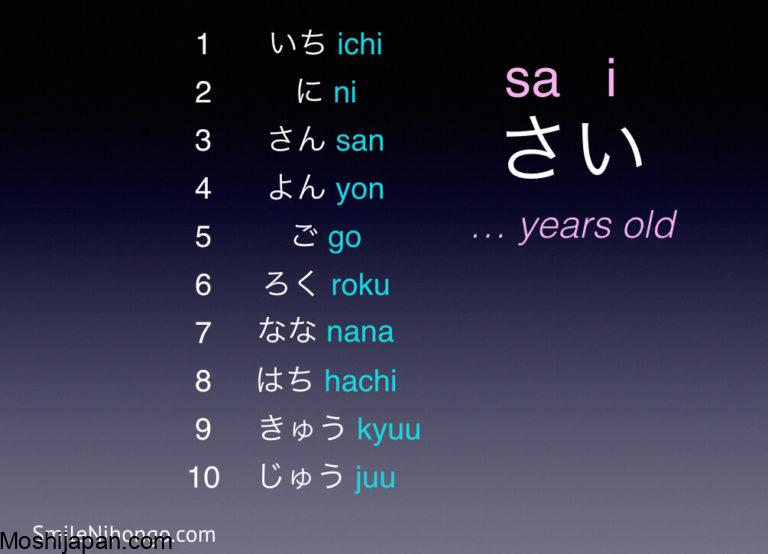
In Japanese culture, politeness is highly valued. When expressing someone else’s age, especially if they are older or you want to show respect, it’s essential to use honorific language. The honorific prefix “お” (o) is often added before the age counter. For example, “おじいさんは80歳です” (Ojiisan wa 80-sai desu) means “The grandfather is 80 years old.”
Age in Context (H2)
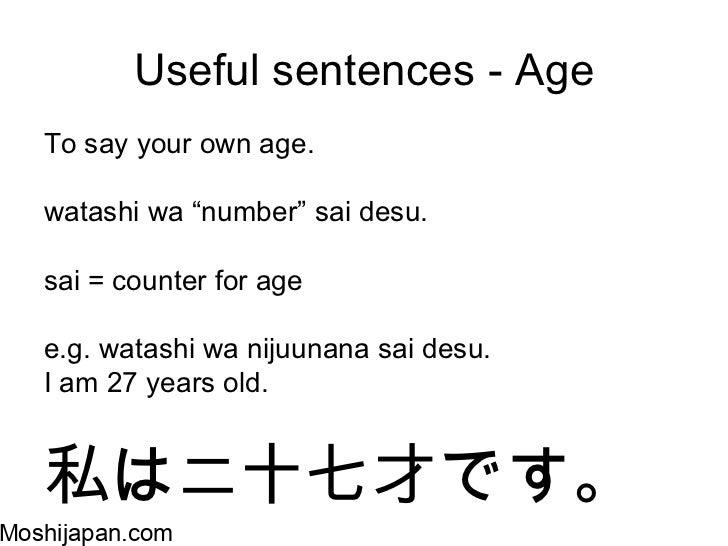
The context in which you express age in Japanese can vary based on the situation and your relationship with the person you’re talking to. For instance, when meeting someone for the first time, you might exchange basic pleasantries, including age. Here’s a common dialogue:
A: こんにちは、お名前は何ですか? (Konnichiwa, o-namae wa nan desu ka?) – Hello, what is your name?
B: こんにちは、私は太郎です。25歳です。 (Konnichiwa, watashi wa Taro desu. 25-sai desu.) – Hello, I’m Taro. I am 25 years old.
In this exchange, person B uses the polite form to introduce themselves and mention their age.
Age and Formality (H2)
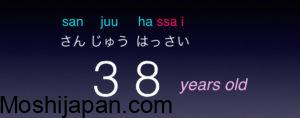
The level of formality also plays a significant role in Japanese communication. When speaking formally, you’ll use more respectful language, especially when referring to age. However, in casual conversations, you can be more relaxed. Here’s an example:
Formal: 私は30歳です。 (Watashi wa 30-sai desu.) – I am 30 years old.
Casual: 俺は30だよ。 (Ore wa 30 da yo.) – I’m 30.
As you can see, the level of formality changes the way age is expressed.
Cultural Insights (H2)
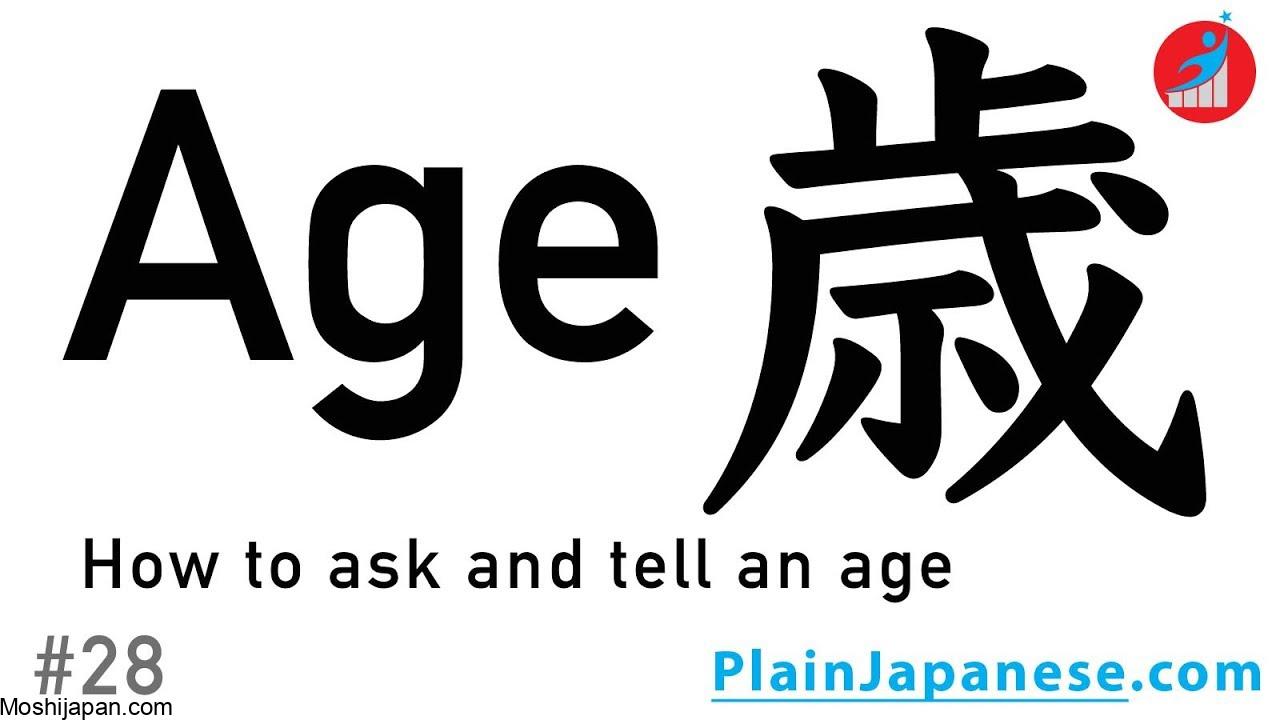
Understanding the cultural context surrounding age expressions is essential in Japan. It’s common for people not to ask directly about someone’s age, especially in formal settings, as it can be considered impolite. Instead, age often comes up organically in conversations or during introductions.
Moshijapan.com – Your Ultimate Guide (H2)
If you’re looking for more insights on How to say age in Japanese, is your ultimate destination. Their Travel section is dedicated to providing the latest information on various topics, including How to say age in Japanese. Follow Moshijapan.com to explore even more about this fascinating aspect of Japanese culture.
And now, a customer review in the Gen Z style:
Customer Review (Gen Z Style):
“OMG, I was like so curious about how to say age in Japanese, and Moshijapan.com totally had my back! Their article was lit ???? and gave me all the deets I needed. No cap, this is the go-to spot for all things Japan. 10/10 would recommend!”
Conclusion (H2)
In conclusion, expressing age in Japanese involves more than just numbers; it’s a reflection of culture, respect, and formality. By understanding the various counters, levels of politeness, and cultural nuances, you’ll be well-equipped to navigate conversations about age in Japanese. Remember to follow for further exploration of this and other exciting aspects of Japanese culture.
So, whether you’re planning a trip to Japan or simply expanding your language skills, you now have a solid foundation in how to say age in Japanese.
keys words
- say hello in japanense
- learn japanense online
- say thank you in japan 2024
- discovery japan 2024
- main airport in japan



0 Comments